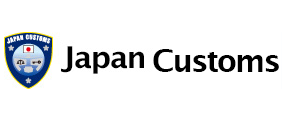Procedure of Obtaining Refunds/ Drawbacks on Duty Payments
Japan has in place programs of exemption, reduction, refund and repayment of Customs duties. The purposes of these programs are as follows:
- to develop and protect domestic industries;
- to promote trade and science;
- to meet requirements associated with social welfare;
- to eliminate double taxation; and
- to stabilize commodity prices.
1.Exemption or Reduction
"Exemption or Reduction" here refers to a situation in which an importer is exempt from all or part of Customs duty payment, in accordance with requirements set out in the Customs Tariff Law (for permanent programs) or the Temporary Tariff Measures Law (for temporary programs).
The Exemption or reduction programs are categorized into two types, namely, unconditional programs and conditional programs. The unconditional programs require that the goods meet certain conditions only at the time of importation whereas the conditional programs require conditions to be met both at the time of importation and thereafter. Under conditional programs, the importer has to pay the normal amount of Customs duties and, in some programs, penalties as well when the conditions are violated or cease to be met after importation.
Application procedures to obtain reduction or exemption of Customs duties, are stipulated in the above-mentioned laws. They include limitation of importers, procedures for reduction and exemption, special use after importation, approval of manufacturing plants, and procedures for use after importation.
2.Refund
"Refund" here means that a Customs duty that has been paid is returned all or in part to the person who paid it, provided conditions in the Customs Tariff Law are satisfied.
A Customs duty is refunded when the goods are spoiled or damaged, or when the goods are raw materials for the manufacture of export goods, or raw materials used in the production of export goods at Hozei Manufacturing Warehouses, or claimed merchandise, or to be exported without any change in their nature and form after their importation.
3.Repayment
(1)The "Repayment" program is provided for in the Temporary Tariff Measures Law and is the same as the "Refund" program in that all or part of the duty is returned. As distinct from the "Refund" program, however, the party receiving the returned duty is not necessarily the one who paid the duty but rather the one who is legally stipulated as such.
This is because the "Repayment" program is designed to nurture petroleum industries and to lower distribution costs, and applicable entities are technically unable to apply for the "Exemption or Reduction", or "Refund" program.
(2) The "Repayment" program applies to petroleum products, such as naphtha, which is produced domestically from imported oil on which duty has already been paid and will be used in the process of manufacturing petrochemical products. It also applies to petroleum asphalt, which is produced domestically from imported oil on which duty has already been paid and is either issued from the factory or consumed in the factory as fuel.

